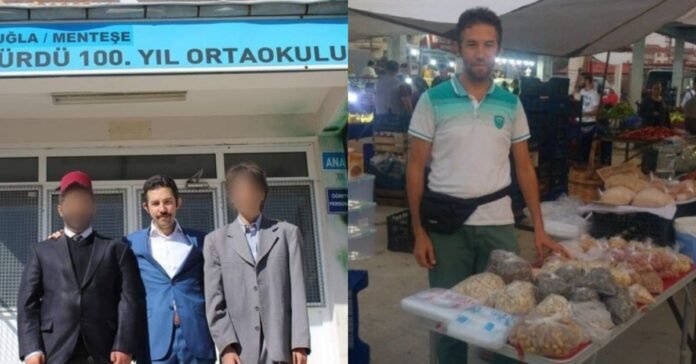Özden Kıvançlı, 46, a social studies teacher dismissed by a government decree and never reinstated despite being acquitted in court, died in a traffic accident on Saturday.
Kıvançlı was summarily dismissed from his job by a government decree after a coup attempt in Turkey on July 15, 2016. After his dismissal, he had to work in survival jobs including selling produce at farmers markets and more recently as a real estate agent in Muğla province.
Following the abortive putsch, the Turkish government declared a state of emergency and carried out a massive purge of state institutions against its political opponents under the pretext of an anti-coup fight. More than 130,000 civil servants as well as 29,444 members of the armed forces were fired from their jobs with emergency decree-laws.
Former public servants were not only fired from their jobs, they were also prohibited from working again in the public sector and getting a passport. The government also made it difficult for them to work formally in the private sector. Notes were put on the social security database about dismissed public servants to deter potential employers.
Ömer Faruk Gergerlioğlu, a lawmaker from the pro-Kurdish Peoples’ Equality and Democracy Party (DEM Party) and a human rights defender, announced Kıvançlı’s passing on social media.
“Another decree law victim died in disappointment,” Gergerlioğlu said.
The accident occurred on Saturday. According to the Kronos news website, a car driven by Kıvançlı’s wife Melek Kıvançlı, accompanied by their children, veered off the road and crashed into a field. Kıvançlı’s wife and children were seriously injured and taken to a hospital by ambulance.
A joint report released by the Justice for Victims Platform and Gergerlioğlu states that dismissed public servants lost 70 percent of their average monthly income, a circumstance that reduced them to dire financial straits,
According to the victims’ family members taking part in the survey, the biggest problem they have been facing is economic hardship (97.9 percent) followed by psychological problems (88.6 percent), loss of social prestige and social exclusion (83.7 percent), disintegration of social circles (83.1 percent), unemployment/lack of employment (80.4 percent) and lack of social security (73.2 percent).
The survey indicates that 99.1 percent of the victims are college or university graduates or holders of master’s or doctoral degrees, which means an immense loss of human resources for Turkey’s public administration.















